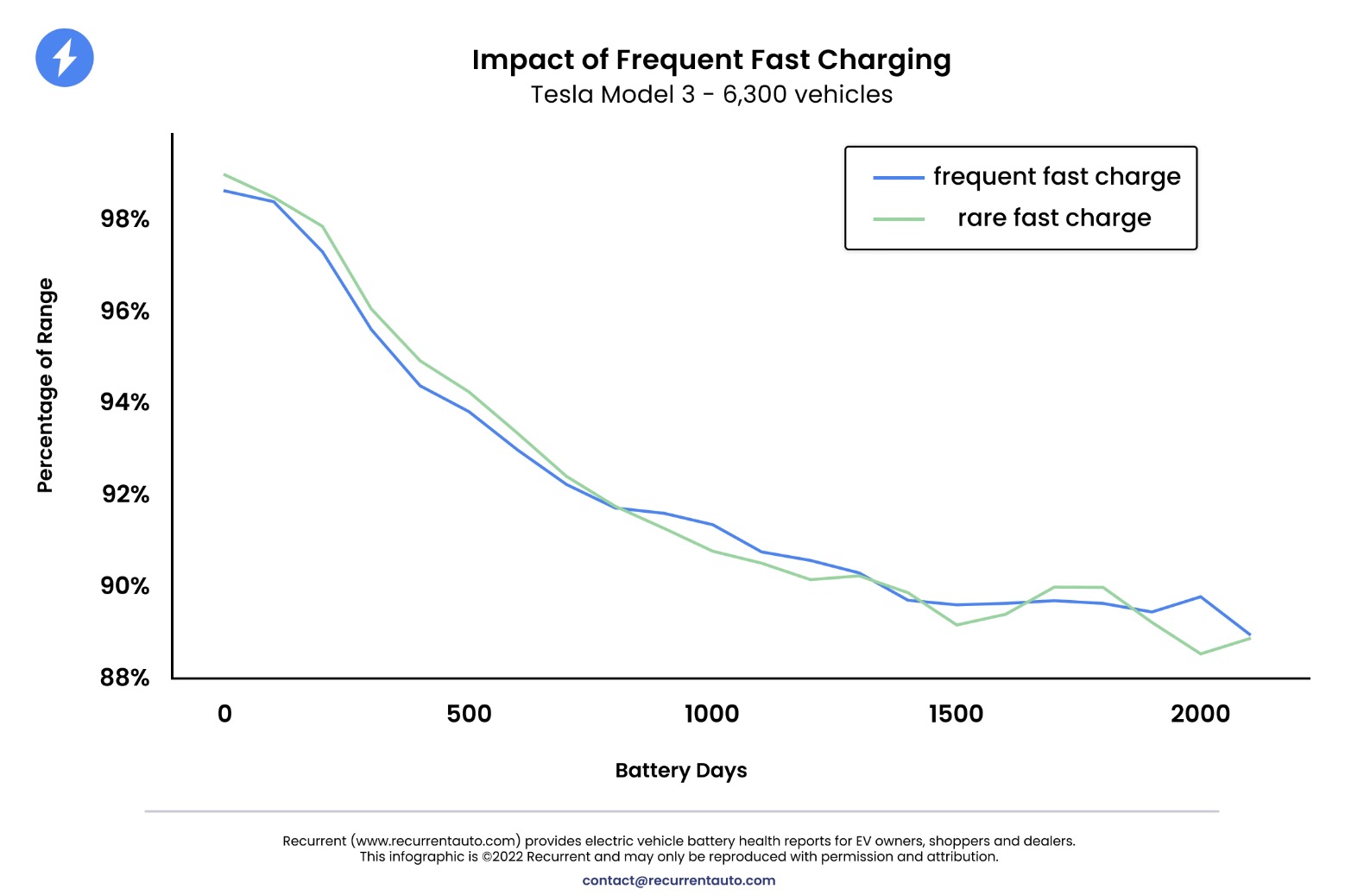
Tesla battery degradation is not accelerated by frequent Supercharging, which was previously thought, according to an extensive new study.
It has long been believed in the industry that frequent DC fast charging is bad for battery longevity; even Tesla used to warn against it.
But we have never seen strong data that support that assertion when it comes to Tesla vehicles, where we have more data on than any other electric vehicles.
In its most recent update about battery degradation, Tesla says that its vehicles lose only about 12% after 200,000 miles.
A new report from Recurrent, which has access to data from over 12,500 Tesla vehicles in the US through its software service, now shows clearly that there’s little to no difference in battery degradation between frequent fast charging and rare fast charging:
As you can see from the charts, the data shows the same result for Model 3, and frequent fast charging actually makes long-term battery degradation a bit better on Model Y.
Interestingly, Recurrent focused on the extreme cases. Here’s how they qualified the vehicles that frequently fast charge versus those that rarely fast charge:
We compared cars that fast charge at least 90% of the time to cars that fast charge less than 10% of the time. In other words, people who almost exclusively fast charge their car and people who very rarely fast charge. The results show no statistically significant difference in range degradation between Teslas that fast charge more than 90% of the time and those that fast charge less than 10% of the time.
In Tesla’s owner manual, the automaker doesn’t talk about frequent DC fast charging affecting battery longevity anymore, but it does mention the potential to “decrease slightly” the peak charging rate:
The peak charging rate of the Battery may decrease slightly after a large number of DC Fast Charging sessions, such as those at Superchargers. To ensure maximum driving range and Battery safety, the Battery charge rate is decreased when the Battery is too cold, when the Battery’s charge is nearly full, and when the Battery conditions change with usage and age. These changes in the condition of the Battery are driven by battery physics and may increase the total Supercharging duration by a few minutes over time.
However, they also warned about fast charging under extreme heat or extreme cold, which is not ideal for battery performance. To be fair, extreme heat and cold are also not good for internal combustion engine vehicles.
Author: Fred Lambert
Source: Electrek






Top comment by Carpe Diem
Liked by 5 people
I have charged almost entirely from Superchargers the past 5 yrs for my Model 3 performance since my apartment refuses to install chargers & I haven’t had any issues besides the range at max charge being about 30 miles less than the 310 i started with, but that went down soon after buying it likely due to spirited driving (my Model S had the same issue despite mostly charging at home).
To be fair I think Tesla slows down charging speed more for cars that supercharge alot to ensure a safer battery. The bigger issue is I normally charge up to around 95% most of the time so I won’t have to go charge as often, but as long as I’m driving home after it won’t be parked at high charge level which can be worse for the battery.
View all comments